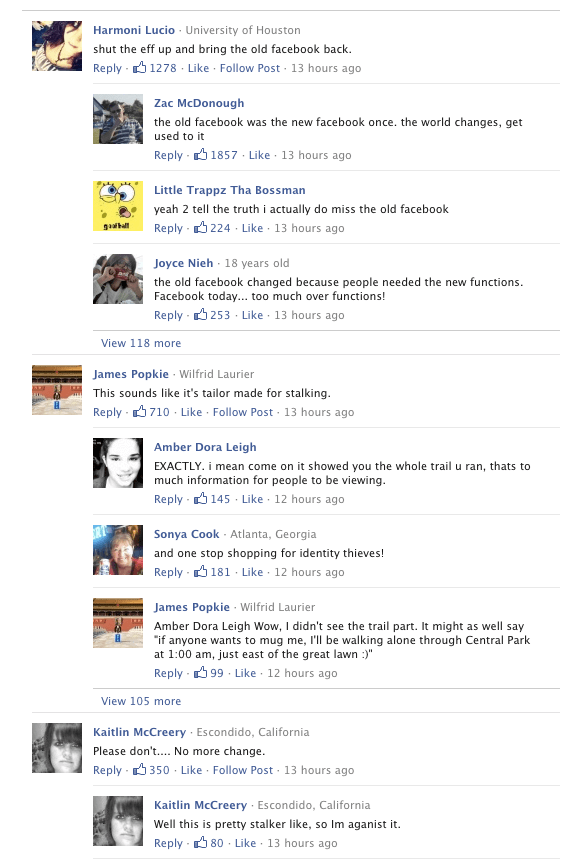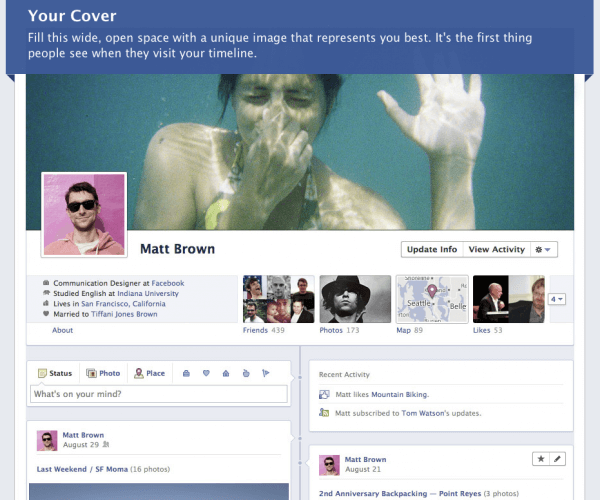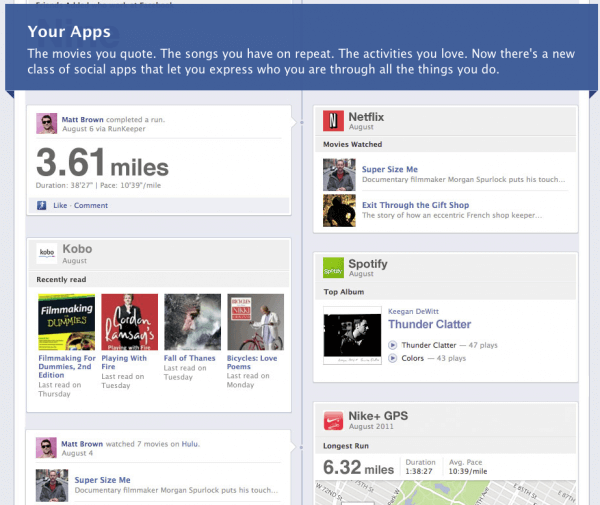As you know, Facebook isn’t just a website, it’s a environment its 400 million active users use everyday. Thanks to the widgets developed through its API, its influence extends much wider than Facebook to the many sites which conversations are shared on. For many, going online means going on Facebook.
So when Facebook briefs journalists to promise that “I have seen what Facebook is launching on Thursday, and it’s going to change the world of social media”, we have to take notice and ask - does this make a difference?
Well, I’ve watched the announcement by Mark Zuckerberg and read the analysis. Does it really change the world for most marketers? I’d have to say “No”. Yes, it offers a much richer way for users to share profile information, but the same underlying features of status updates, business Facebook pages and advertising remain the same.
That said, it does offer BIG changes for users and (as with many new Facebook features), many don’t like it. Here’s a sample of user complaints from the Facebook blog:

So, all that said, what of the features. Well you can simplify it to just two in the Thursday announcement:
1. Timeline. The Timeline is the headline feature - a more visual profile in a magazine/scrapbook layout which is going to mean more time spent curating profiles, but not big changes for marketers to communicate differently. You can sign up here and View a Timeline demo, but it’s not available yet to users.

Facebook has also taken a big hammering for changes to its prioritisation of updates and the new ticker earlier in the week - these are also major new features for users, which don't really affect marketers other than getting cut-through with updates from business pages could be harder.
I do wonder whether the timeline format will cause a backlash since it gets in the way of the “here and now” which it seems is what Facebook users want.
It does make you wonder how sound Facebook’s approach to test changes to it’s experience are… How big is their panel
2. App integration. For me, this is the big change and it has opportunities for big brand marketing. This example shows how Facebook is working with big brands to integrate apps into the timeline. Yes this will offer media companies, gaming companies and also retailers to showcase their service. But I do wonder with the overhead of installing an app how many users will want brand apps on their timeline auto-updating what they’re doing. The Nike app for example has been criticised as a stalkers dream!

Facebook also show that sharing of Apps through Facebook's update to Open Graph will be possible through profiles, which is another reason for more development of apps. This graphic from the Facebook Developer blog shows how sharing will happen.

Indeed, Facebook's CTO has said this is the biggest change to Facebook for some time. We'll be talking about a new algorithm called "Graph Rank" - related to EdgeRank which will affect personalisation and sharing of apps. You'll also be able to see how the apps are affecting sharing through the feed, ticker and timeline through an upgrade to Facebook Insights:

Here's a thought. If you're prioritising a mobile app (or mobile optimized site) against a Facebook app, which is likely to get the most users and have the most sharing potential given Facebooks adoption?
3. From Like buttons to verb buttons. Interesting and I’m sure we’ll some creative uses of this by marketers, but it’s not going to change the way we communicate much.
You can see the example above has "cooked it" rather than "Like"!
4. Advertising options. There’s no word from Facebook on this in their announcement, but you would expect they would review the impact of the new page templates on revenue per visitor. If you advertise in Facebook already it’s certainly going to be worthwhile reviewing which methods work - AllFacebook has a good analysis.









